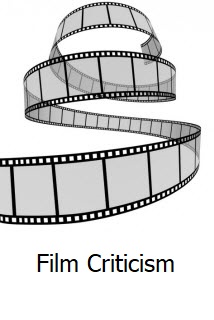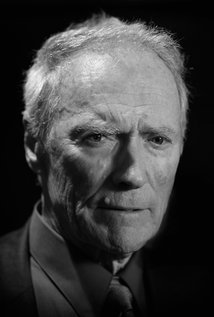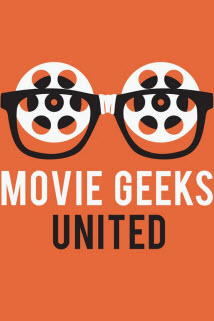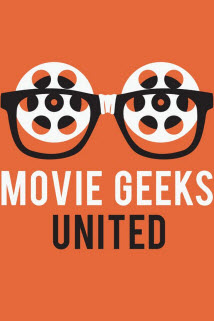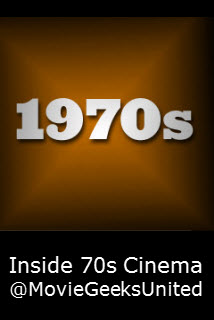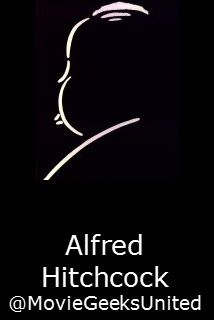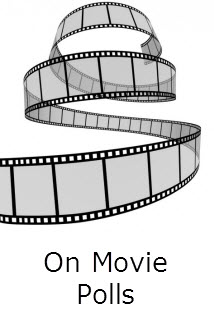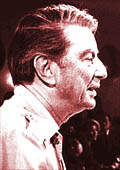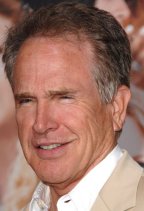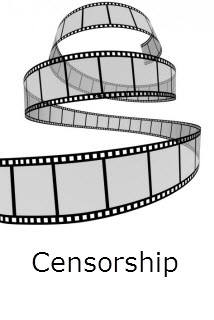Top Ten Movie Endings

Content by Tony Macklin. Originally published on June 23, 2006 @ FYLMZ.com.
Recently boxing-guru Al Bernstein participated in a 48-hour radio fund raiser for The Caring Place -- "a facility for those touched by cancer." He asked me to come on and talk about my favorite movie endings.
Today endings often don't resolve anything. A prime recent example is Pirates of the Caribbean: Dead Man's Chest, which at the end perfunctorily introduces Barbossa (Geoffrey Rush) from the first Pirates film and seems totally aimed at setting up the next sequel. It's really a cheat, but by that time -- 2 1/2 hours -- the audience is sated and ready to walk any plank out of the theater.
The best directors often have trouble with endings; Martin Scorsese and Ron Howard are two that sometimes fade at the end. Scorsese, playing the part of director Joe Lesser in Irwin Winkler's Guilty of Suspicion (1991), pokes fun at his own inability to end a movie. Howard's endings often seem afterthoughts -- never as effective as the movies that precede them. A Beautiful Mind (2001) won the Academy Award as Best Picture of the Year, but its ending -- with an audience applauding John Nash at the Nobel ceremonies -- is perfunctory and generic.
A few rare endings are so sly that no one remembers them. If you ever want to win a bet, ask someone -- even if that person has just seen the film -- what the final words are in The Silence of the Lambs (1991). Even the usually-omniscient Tim Dirks on his website The Greatest Films fails to include them in his description of the ending.
People always think the final words are from Hannibal Lector when over the phone he tells Clarice that he is "having a friend for dinner." But that's not the ending. Director Jonathan Demme and writer Ted Tally keep the movie going. Hannibal's fatuous adversary Dr. Frederick Chilton deplanes in a Third World country and asks a man if the security is set up and the man replies in the affimative. Then we see Lector walking among the people. We're exporting paranoia and serial killing.
I love that ending, because nobody gets it. But since nobody gets it, it's very esoteric, and my delight may be critical hubris.
The best endings are the ones that have impact and are essential to their films' visions. The following are ten endings that leave their movies reverberating with meaning:
- My favorite ending is Chinatown (1974), directed by Roman Polanski. After Evelyn (Faye Dunaway) is killed in Chinatown, Jake Gittes (Jack Nicholson) is led away into the darkness as an assistant says, "Forget it, Jake. It's Chinatown." Then comes the haunting theme music by Jerry Goldsmith, who replaced the original composer. The angst and the music are soulful and sadly potent.
- Bonnie and Clyde (1967), directed by Arthur Penn, is the most effective ending I've seen in a theater. After the shocking, spasmodic death of Bonnie (Faye Dunaway again) and Clyde (Warren Beatty) -- incredibly edited by Dede Allen -- not a word is spoken on the screen. No one in the audience leaving the theater spoke either. It was shared emotion -- a stunning movie experience.
- Vertigo (1958), directed by Alfred Hitchcock, is another film with an ending steeped in irony. It may be his finest film; it was his best ending. Hitch knew how to end his films. After Madeleine/Judy (Kim Novak) -- who became an overpowering obsession for Scottie Ferguson (James Stewart) -- plunges off a tower, Scottie stands in frozen horror, forever lost. Bernard Herrmann's music brilliantly punctuates his alienation.
- The Searchers (1956), directed by John Ford, has John Wayne's signature performance as Ethan Edwards. At the end he strikes a pose that pays homage to western actor Harry Carey. "I was playing that scene for Ollie Carey," Wayne told me. Ollie Carey has a part in the film, and Harry her husband had recently died. In the final sequence, as the door to the house closes leaving Ethan alone outside, Wayne struck the familar pose. "She and I talked about Harry in that stance on other occasions," said the Duke, "and I saw her looking at me, and I just did it. Goddamn, tears just came to her eyes." It is a classic.
- Shane (1953), directed by George Stevens. As a lad my favorite actor was Alan Ladd. I didn't realize until much later that as he rides away, slumped in the saddle, Shane is mortally wounded. "Come back, Shane!"
- Dr. Strangelove (1964), directed by Stanley Kubrick. Talk about irony! The last image is a beautiful mushroom cloud from a nuclear bomb as Vera Lynn sweetly croons, "We'll Meet Again." It's gorgeous nihilism.
- The Godfather II (1974), directed by Francis Ford Coppola. In a withering image, Michael Corleone (Al Pacino) in winter sits alone on a bench amidst stark trees. It's a cold, sterile vision of his soul.
- La Dolce Vita (1960), directed by Federico Fellini. Marcello (Marcello Mastroianni) sees a young girl in the distance -- a lovely vision of youth and innocence. But he merely shrugs. He can't reach her from his jaded, corrupt state..
- Dirty Harry (1971), directed by Don Siegel. After killing Scorpio, Harry (Clint Eastwood) throws away his badge as modern traffic moves far in the distance. His doppleganger and the Old West are dead.
- It's a Wonderful Life (1946), directed by Frank Capra. Let's conclude with an upbeat ending amidst all the irony and alienation. All is well as we see George Bailey (James Stewart) holding his daughter as they hear a tinkling bell signifying that angel Clarence got his wings. Way to go, Clarence!
Some other films with special endings:
The Third Man, Citizen Kane, Casablanca, The Graduate, Alien, Five Easy Pieces, The Candidate, The Circus, The Long Goodbye, The Maltese Falcon, Jules and Jim, Psycho, The Birds, Carrie, Manhunter, The Wild Bunch, Once Upon a Time in the West, The Shawshank Redemption, Fight Club, The Usual Suspects.



